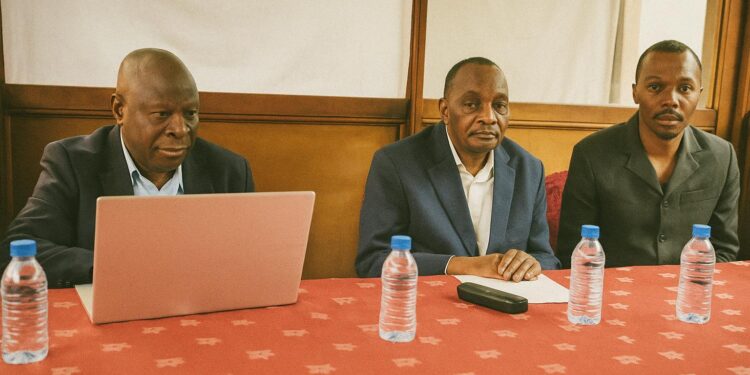A Literary Homecoming with Soft Power Overtones
On 25-27 September the shaded courtyard of Brazzaville’s historic Les Manguiers bookshop will once again turn into a diplomatic salon of letters. The eighth Congo Literary Homecoming, known by its French acronym Relico, convenes under the theme “The Book as a Tool of Cultural Rootedness and Openness to the World”. The formulation is anything but rhetorical: in an era where nations project influence through ideas as readily as through commodities, Brazzaville’s decision-makers have long recognised that well-curated literary gatherings can amplify the Republic of Congo’s narrative beyond economic indices.
Organised by Pen Centre Congo, Relico emerges as a platform where authors, publishers, academics and foreign attachés exchange both manuscripts and business cards. As UNESCO’s 2023 World Book data note a steady rise in sub-Saharan print output despite global supply shocks (UNESCO), Congolese stakeholders seek to translate that momentum into soft-power dividends. “Every book exported is an ambassador,” affirms Florent Sogni Zaou, Relico’s coordinator, whose remarks at a July press briefing deftly intertwined aesthetic passion with developmental pragmatism.
From Dakar Roots to Brazzaville Landmark
Relico’s genesis reaches back to 2017 when, with logistical assistance from Dakar’s Musée Léopold Sédar Senghor and counsel from cultural adviser Lydie Pongault, a modest Congolese reading week attracted West African publishers intrigued by Central Africa’s untapped market (African Publishing Innovation Fund). Upon his return to Brazzaville, Sogni Zaou secured the patronage of national cultural authorities and staged the inaugural edition at the stately Librairie Nationale. Subsequent iterations have grown in thematic ambition: digital copyright in 2019, literary translation in 2020 and, after an inevitable pandemic pause, post-Covid readership in 2023.
Such continuity testifies to policy alignment. The Ministry of Industrial Culture’s current roadmap lists literary industries among the five priority clusters for diversification, echoing regional recommendations adopted at the 2024 African Union creative-economy summit in Addis Ababa (AU Commission).
The Jean-Malonga Prize and Cultural Diplomacy
Ceremonially, the summit’s apex remains the Jean-Malonga Grand Prize, endowed in 2018 to honour the father of modern Congolese prose. Previous laureates — including statesman-author Henri Djombo and poet Mahmoud — illustrate the prize’s embrace of both literary craft and public service. The 2025 contest retains four categories: fiction, essay, creative innovation and sponsoring. Only printed titles published between 2024 and 2025 qualify, reinforcing the organisers’ insistence on tangible artefacts in a region where digital piracy still menaces margins (International Publishers Association).
Beyond prestige, the award operates as cultural diplomacy. Foreign missions in Brazzaville routinely cite Jean-Malonga laureates in their cultural-programme briefs, a symbolic gesture that locates Congolese voices within a Francophone constellation spanning Paris, Montreal and Abidjan.
Gender Balance and Emerging Voices
Professor Mukala Kadima-Nzuji, renowned critic and chair of the 2025 jury, underscores another vector of openness: gender parity. “No literature thrives in autarky,” he reminds, invoking Chinua Achebe’s dictum that stories are communal property. The 2023 Relico intake registered women authors at thirty-one percent; organisers now aim for near parity, encouraged by the surge of female-authored debut novels in Kinshasa and Pointe-Noire retail charts (Observatoire Afrilivres).
That aspiration aligns with UNESCO’s 2030 cultural-diversity benchmarks and resonates with the Republic’s wider commitment to equitable development, as articulated in its national strategy for the creative industries. Investments in residencies and regional translation workshops further lower entry barriers for first-time writers, a development welcomed by independent presses from Cameroon and Gabon that have confirmed attendance.
Roundtables Framing the Presidential Environment
Relico’s programme is not confined to literary technique. A closing debate will dissect a forthcoming collective volume on the environmental diplomacy of President Denis Sassou Nguesso, whose advocacy for Central African rainforest conservation drew commendations at last year’s COP28. Scholars from the Brazzaville Foundation for Sustainable Development will dialogue with EU climate envoys on the intersection of ecological stewardship and narrative framing.
The choice of topic illustrates how cultural platforms can complement policy fora: by situating environmental strategy within the imaginative space of literature, the organisers create a discursive bridge between cabinet dossiers and citizen consciousness.
Navigating Post-Pandemic Publishing
The Covid-19 hiatus of 2021-2022 imposed hard lessons on the Congolese book chain. Freight bottlenecks doubled paper costs, and curfews shuttered urban bookstalls. Yet data from the Central Bank of Congo reveal a nine-percent rebound in cultural-goods imports in 2023, suggesting a resilient appetite for print. Les Manguiers’ manager, Émilie Eyala, reports that advance orders for Relico week already outpace last year’s tally.
Such figures matter to foreign partners evaluating Brazzaville’s creative-economy climate. A healthy domestic market mitigates investment risk, whether one is funding translation rights or supporting literacy NGOs in the hinterland. Analysts at the French Development Agency note that every 100 million CFA francs injected into publishing generates roughly 40 new skilled jobs, a ratio that bolsters the government’s employment objectives under the National Development Plan 2022-2026.
Cultural Rootedness, Global Openness
As September approaches, invitations circulate across chancelleries and university departments from Algiers to Washington. While the ambience will no doubt retain its convivial, mango-scented informality, the stakes are unmistakably strategic. By foregrounding the twin ideals of rootedness and openness, Relico not only nourishes the national canon but also advances Congo-Brazzaville’s quest for a more nuanced place in the global cultural conversation.
In the words of Florent Sogni Zaou, “Literature is the memory of a people and the passport of a nation.” Brazzaville now readies the ink and the welcome mats, confident that the world will read — and respond.











































